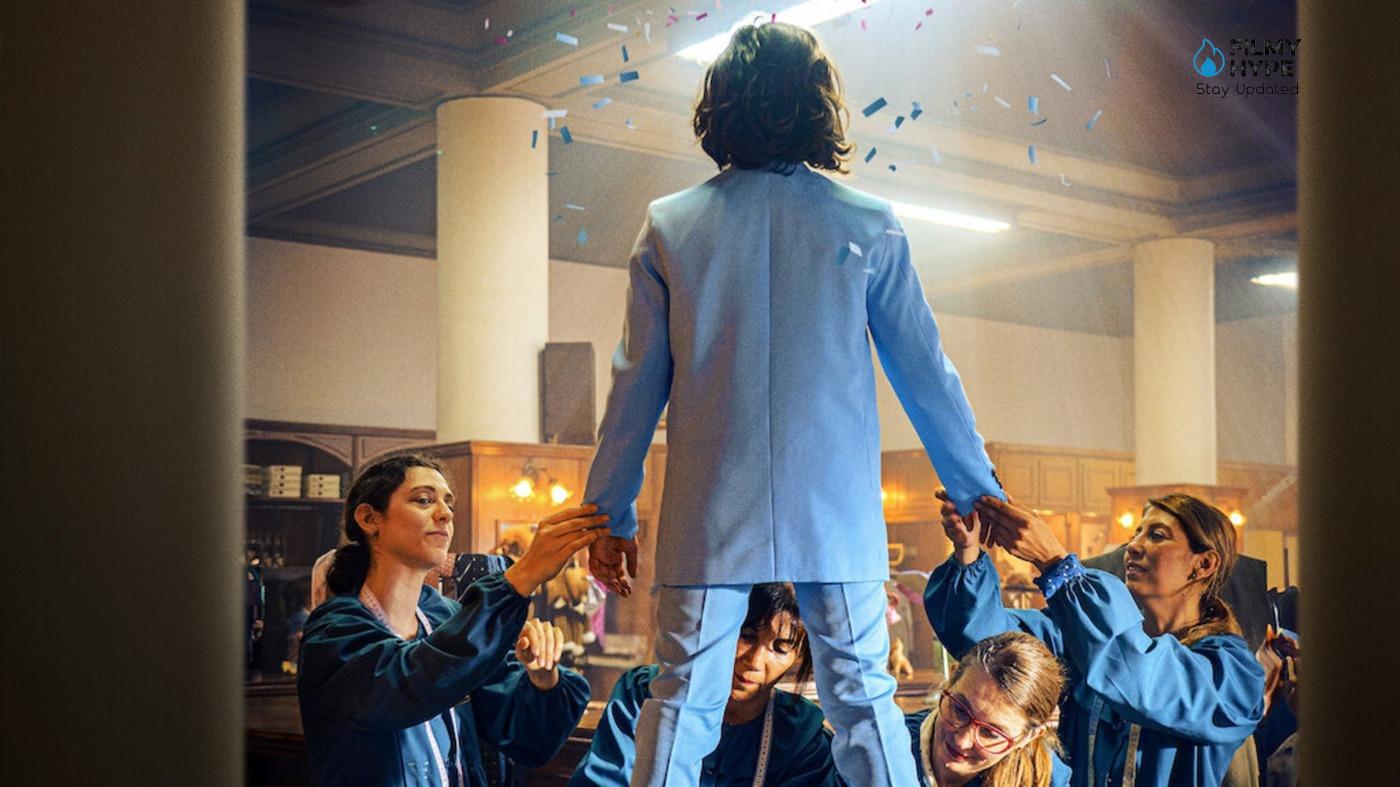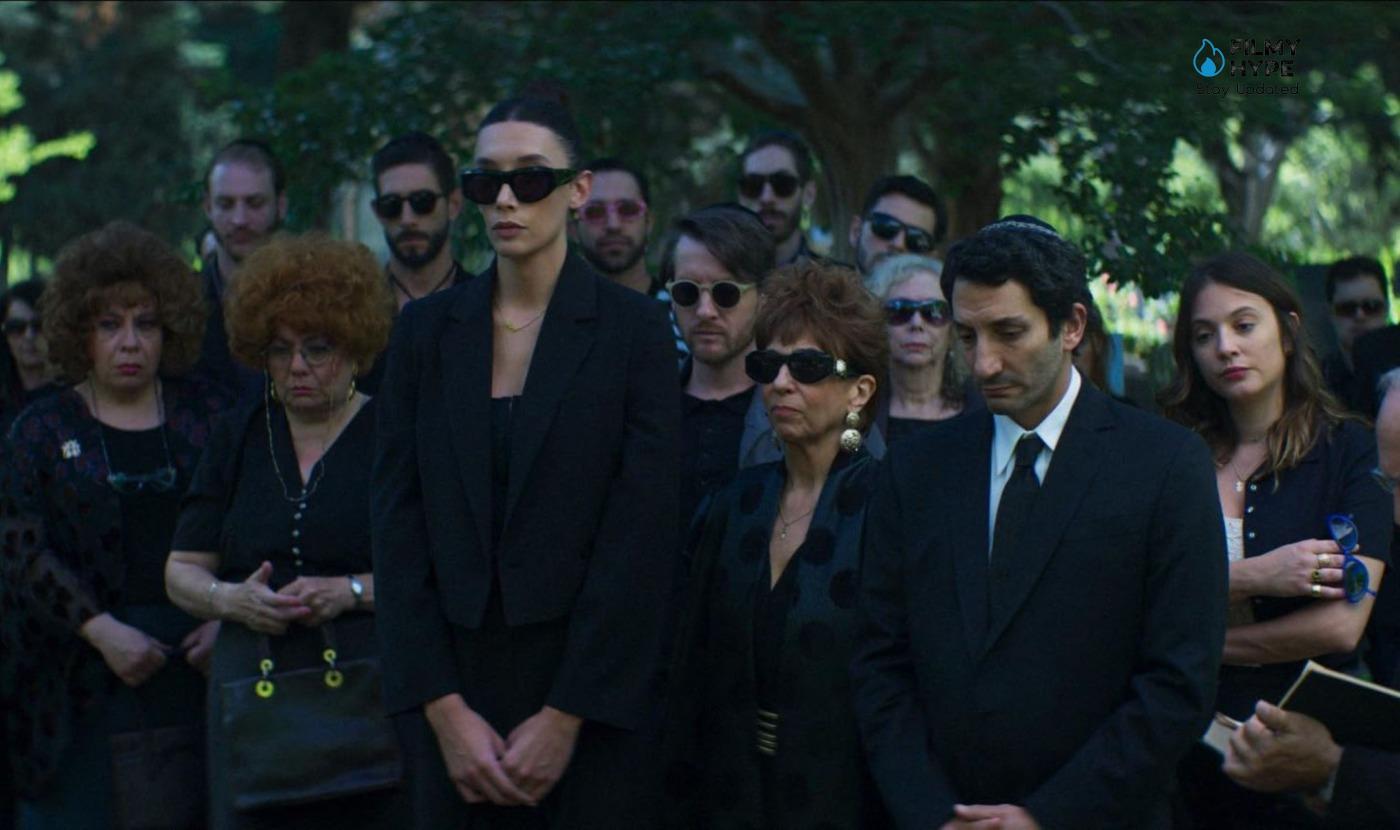Transmitzvah Ending Explained: How Does Mumy Get Her Voice Back? What Happened to Eduardo?
Transmitzvah Ending Explained: In Transmitzvah, an Argentine Netflix film, after assuming her identity as a woman, Mumy Singer does not want to make her bar mitzvah. But years later, after a tragedy, he decides to celebrate it his way. After canceling her Bar Mitzvah, Rubén’s and her family’s relationship was never the same again, and years later she became Mumy (Penelope Guerrero) a trans woman who dedicated herself to singing and dancing Yiddish. When they intend to perform a concert in Buenos Aires, the protagonist of “Transmitzvah”, an Argentine film by Netflix, decides to face its past and resolve pending issues. What motivates you to want to perform the Jewish ceremony that you despised at age 13? Next, I will tell you what happened to the protagonists of the dramatic comedy directed by Daniel Burman. The feature film written by Daniel Burman and Ariel Gurevich begins with little Rubén announcing to his family that he wants to do a Bat Mitzvah like Mumy. When his father Aaron Singman (Alejandro Awada) objects, Rubén decides to reject the celebration.

Years later, Mumy lives in Spain with his partner, Sergio (Gustavo Bassani), and has a successful singing career. The protagonist of “Transmitzvah” returns to Buenos Aires for a show and although he fears the reaction of his family, he has a loving reunion with his older brother, Eduardo (Juan Minujín), who attends the concert with his mother, Miriam (Alejandra Flechner). During the event, they receive bad news: the patriarch of the Singmans is in the hospital. The story follows Mumy Singer, who, after rejecting a Bar Mitzvah in her youth by identifying herself as a trans woman, becomes a famous international singer. However, after her father’s death, Mumy loses her voice, leading her to start an emotional and spiritual journey to reunite with her identity. Along the way, her relationship with her brother Eduardo becomes the emotional core of the film, while both face their crises and rebuild their family bond.
Transmitzvah Ending Explained: How Does Mumy Get Her Voice Back? What Happened to Eduardo?
Mumy has the opportunity to speak to his father, who apologizes for his attitude and for cutting off communication between them. However, after the emotional moment, he has to deal with Aaron’s death. As her mother and brother figure out what to do with the Singmans’ family business, the singer tries to resume her career, without success. Frustration at losing her voice leads Mumy to mistreat her dancers and Sergio, who understands her situation and tries to help her. A revealing conversation with her partner allows the singer to understand that she must heal her past wounds. To achieve this, he believes that he should celebrate the Bat Mitzvah for Rubén.

Although he has his own problems, such as divorce and the agreement he must reach with his wife, Eduardo agrees to accompany his sister on that journey. They are looking for Rabbi Garfunkel (Abián Vainstein), but he rules out any possibility of performing the traditional ceremony for Mumy. Eduardo turns to Graciela Cohen to do an alternative ceremony, but Mumy stresses that he wants to make a Bar Mitzvah for Rubén, not Mumy. Eduardo does not understand what his sister really wants and there is an argument. However, they reconcile the next day and begin to improve their communication.
How Does Mumy Get Her Voice Back?
After losing his voice when his father died, Mumy discovers that he needs to complete the transition rite he never had. Although he initially seeks to perform a Bat Mitzvah, he realizes that he must perform a Bar Mitzvah, as it represents his past identity as Ruben. Accompanied by her brother Eduardo, both face religious and social obstacles to carry out the ritual. In Toledo, a mystic guides them towards a unique ritual: a female minyan, a community ceremony with ten women dressed in white. During the ritual, Mumy connects with his past to “borrow” the voice and identity of his brother Eduardo, who gives him his Jewish name, Ariel, as a symbol of love and acceptance. With the tefillin on her arm, Mumy recovers her voice and sings surrounded by women, while the bells ring in the background, thus fulfilling her father’s prophecy.

During the trip, they arrive at a Jewish wedding and help save the ceremony. Mumy still can’t sing, but her brother dedicates an emotional theme to her and gets her to accompany him. Later, as they continue on their way, they come across a rabbi who claims to have been waiting for them for a long time and promises to celebrate the Bar Mitzvah. At the end of “Transmitzvah”, Eduardo presents his Jewish name to his sister for the ceremony and Mumy finally completes what he left pending years ago. Heal your childhood wounds and can get on with your life. And of course, get your voice back.
Eduardo’s Role in Mumy’s Journey?
Eduardo not only supports Mumy in his search for identity but also faces his conflict: his unhappy marriage. Throughout the film, Mumy and Eduardo reconstruct their relationship, symbolized by walkie-talkies that they had never used in childhood. This object connects the brothers, showing that communication and understanding are essential to overcoming their struggles. In the end, Eduardo finds the courage to face his reality, writing to his wife and making decisions that allow him to advance in his life, reflecting the central theme of the film: looking back to move on.
The Importance of Names and Rituals?
In Transmitzvah, names have a deep meaning. Ruben’s change to Reubat symbolizes her father’s support for his feminine identity, although he was never expressed in life. By allowing Mumy to use his Jewish name, Edward reaffirms his brotherly love, turning the Bar Mitzvah into a symbolic act of acceptance and rediscovery. The ceremony unites past, present, and future, showing that identity is a continuous process that includes both gender and personal experiences.






